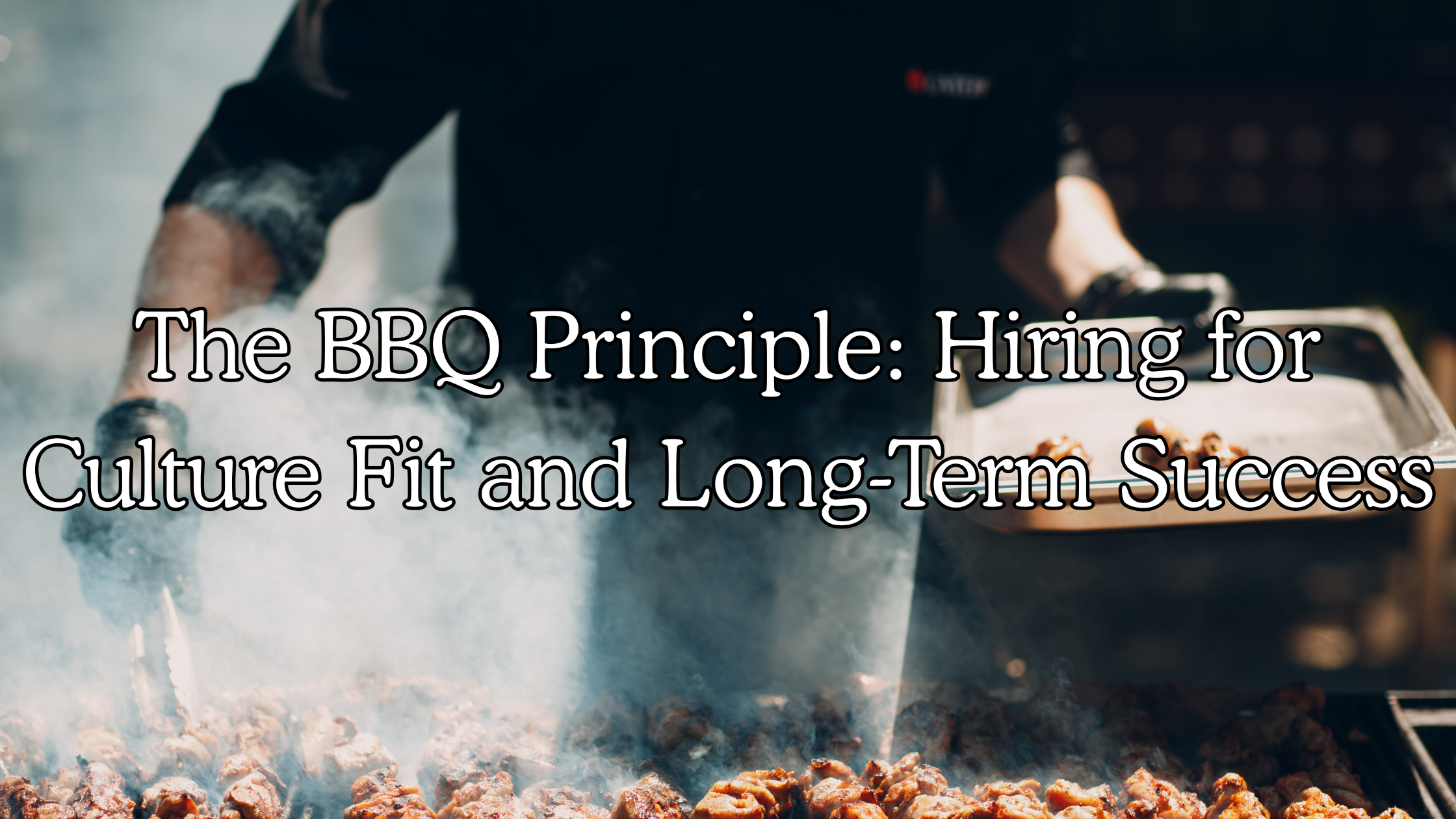The BBQ Principle: Hiring for Culture Fit and Long-Term Success

Anyone who knows me, knows that one of my hobbies is smoking ribs, briskets, chicken, and all other kinds of meat. So, it should come as no surprise that one of the questions I ask myself when hiring a new team member is, "Would I invite them to my invite-only backyard BBQ?"
Now, I'm not suggesting that BBQ etiquette is a core competency for every role. But this seemingly simple question gets to the heart of a crucial element in team building: culture fit.
As Shake Shack founder Danny Meyer wisely said, "Culture equals the wanted behaviors you celebrate minus the unwanted behaviors you tolerate." It's not just about skills and experience; it's about finding individuals who align with your values, your team's dynamics, and the overall spirit of your organization.
Think about it: an applicant can have all the talent in the world, a resume overflowing with accomplishments, and glowing references. Yet, if you wouldn't even want to spend a casual afternoon with them at your backyard BBQ, how can you truly trust them to uphold your culture, collaborate effectively with your team, and represent your company's values? It makes it nearly impossible.
The "Backyard BBQ Test" is a gut check. It forces you to look beyond the surface and consider the intangible qualities that make someone a great team member:
Do they share your values? Are they honest, reliable, respectful, and committed to excellence?
Are they a good communicator? Can they engage in open and constructive dialogue?
Are they a team player? Do they prioritize collaboration and support their colleagues?
Are they adaptable and positive? Can they navigate challenges with a good attitude?
Are they genuinely interested in building relationships? Do they value connection and camaraderie?
Hiring someone who doesn't fit your culture can be incredibly costly. It can lead to:
Decreased productivity: Misalignment can create friction and slow down progress.
Increased conflict: Differing values can lead to disagreements and tension within the team.
Higher turnover: Employees who don't feel like they belong are more likely to leave.
Damage to your reputation: A toxic work environment can negatively impact your company's image.
The next time you're hiring, ask yourself the BBQ question. It's a simple yet powerful way to ensure you're not just building a team of talented individuals, but a cohesive and thriving culture where everyone can succeed. It's about finding people you'd not only trust to get the job done but also enjoy spending time with along the way.